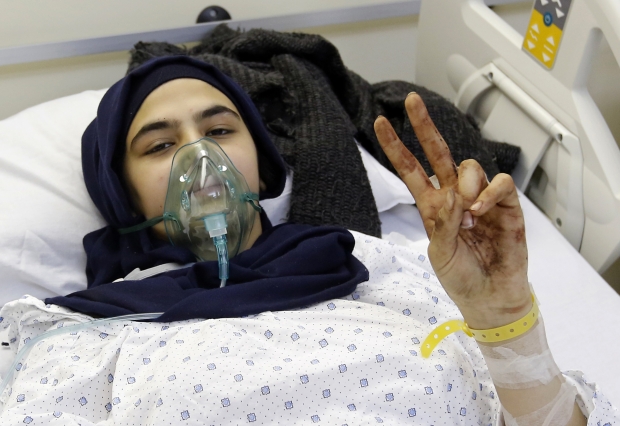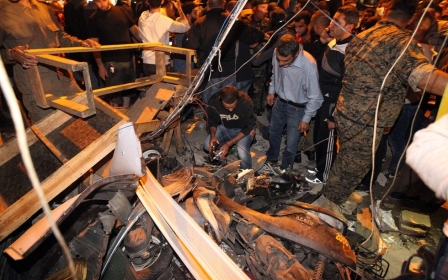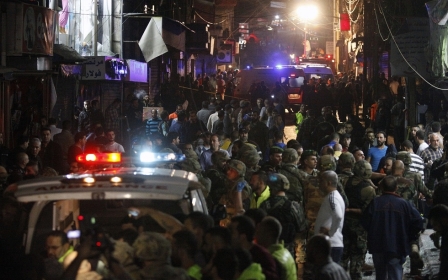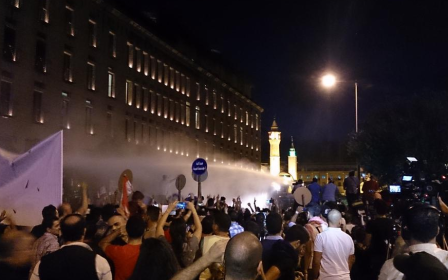Lebanon in mourning after Islamic State attack
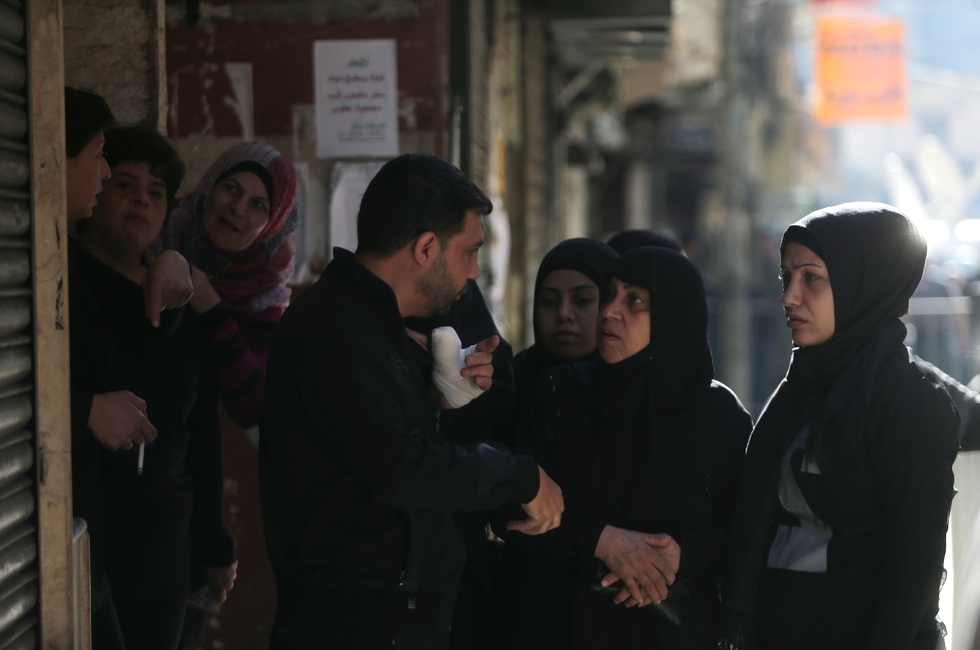
Lebanon on Friday mourned 43 people killed in south Beirut in a twin bombing claimed by the Islamic State group, the bloodiest such attack in years.
At least 239 people were also wounded, several in critical condition, in blasts that hit a busy shopping street in the Burj al-Barajneh neighbourhood, where many supporters of the Hezbollah movement live.
The attack raised memories of a campaign against the group between 2013 and 2014, ostensibly in revenge for its military support of government forces in neighbouring Syria's civil war.
Thursday’s bombing, though, was the largest attack ever claimed by IS in Lebanon, and among the deadliest bombings to hit the country since the end of the 1975-1990 civil war.
On Friday, families prepared to collect the bodies of loved ones from hospitals as the country observed a day of national mourning declared by Prime Minister Tammam Salam.
Schools were closed for the day, and politicians across Lebanon's fractured political spectrum offered condemnations of the attack.
The first bomber targeted a Shia religious venue known as a Hussainia on the last day of the month of Muharram, when Shia Muslims mourn the death of Ali, the most venerated historical figure in the tradition.
Local media on Friday hailed as a hero Adel Tormos, who was worshipping inside the Hussainia when the bomber attempted to enter.
Tormos stopped the attacker getting into the packed building – he and his young daughter were reportedly killed when the suicide bomber detonated his explosives vest outside the venue instead.
Translation: One of the martyrs, Adel Tormos, sacrificed himself to stop of one the suicide bombers before he entered the mosque
The second bomb struck some seven minutes after the first - in footage from the scene screams of panic and shock in the wake of the initial blast can be heard as the second hits.
The body of a third attempted attacker who failed to detonate his explosive device was found at the scene of the second blast.
A fourth man wearing a suicide vest was arrested on Thursday night as he reportedly attempted to enter a hospital in the same district.
Unverified footage from the scene showed shots echoing through the streets of the deprived suburb as security services chased the alleged militant before apprehending him.
Local television showed bystanders rushing to the scene to help pull people from the rubble of destroyed buildings and ferry them to hospitals, which put out calls for urgent blood donations.
"I carried four bodies with my own hands, three women and a man, a friend of mine," a man who gave his name as Zein al-Abideen Khaddam told local television.
Another described the sound of the explosions: "When the second blast went off, I thought the world had ended."
'Despicable act'
An IS statement of responsibility for the attack, which could not be verified, but followed the format of previous such statements, did not mention the Hezbollah movement or its involvement in the Syrian conflict, but instead used starkly sectarian language and derogatory terms aimed at Shia Muslims.
The militant Sunni group considers members of the sect, as well as others who stray from its interpretation of Islam, to be apostates.
Supporters of the group hailed the bombing online, celebrating an attack that targeted one of Syrian President Bashar al-Assad’s main allies.
Backers of Hezbollah, which entered the Syrian conflict in 2012 to support Assad, circulated images of boxes of missiles marked “in revenge for the victims of al-Dhaheya,” the suburb where the attack occurred.
Assad’s government was quick to condemn the “criminal” attack, saying in a statement that it represented “the same terror that threatens Syria…and threatens to spread throughout the region and the whole world”.
Regional powers including Saudi Arabia, Turkey and Jordan were also quick to condemn the attack, and French President Francois Hollande on Friday called it “despicable”.
Within Lebanon, which remains bitterly divided 15 years after the end of a civil war that lasted one and a half decades, political leaders from across the spectrum also decried the bombings.
Former Lebanese premier Saad Hariri, who leads a political bloc opposed to Hezbollah and its allies, called the attack "vile and unjustified".
Campaign of blasts
The blasts were the first to target a Hezbollah stronghold since mid-2014, after a campaign of such attacks in 2013 and 2014.
In the last, in the southern suburbs of Beirut in June last year, a suicide car bomb killed a security officer.
The attacks were claimed by a variety of militant groups, including one in January 2014 claimed by the Islamic State of Iraq and the Levant, which later rebranded itself as IS.
Most said their attacks were in retaliation for Hezbollah's backing of President Bashar al-Assad's regime, although the victims of the blasts were overwhelmingly civilians.
Hezbollah is a staunch ally of the Syrian government and is backed by Iran, another key supporter of the Damascus government.
In early 2013, it officially acknowledged that it was dispatching fighters to back government forces against an uprising that began with anti-government demonstrations in March 2011.
Since then, it has become deeply involved in the conflict, deploying fighters throughout the country to bolster Assad's troops on a range of battlefields.
At least 971 Hezbollah fighters have been killed in Syria, according to the Britain-based Syrian Observatory for Human Rights.
New MEE newsletter: Jerusalem Dispatch
Sign up to get the latest insights and analysis on Israel-Palestine, alongside Turkey Unpacked and other MEE newsletters
Middle East Eye delivers independent and unrivalled coverage and analysis of the Middle East, North Africa and beyond. To learn more about republishing this content and the associated fees, please fill out this form. More about MEE can be found here.


